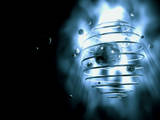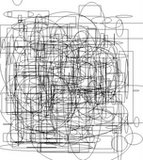Setting Targets in the Fight against Corruption by Louis Evan Palmer
 As any dictionary will inform, corruption is a diminishment of integrity and it's an inducement to break the rules often by improper means such as bribery or blackmail. But, it's more, it's a subversion of the rule of law; it's a step towards a criminal society run by crooks & thugs; as harmless as corruption might seem under some circumstances, it represents a menace to good government. It is not something that can be safely ignored or minimized.
As any dictionary will inform, corruption is a diminishment of integrity and it's an inducement to break the rules often by improper means such as bribery or blackmail. But, it's more, it's a subversion of the rule of law; it's a step towards a criminal society run by crooks & thugs; as harmless as corruption might seem under some circumstances, it represents a menace to good government. It is not something that can be safely ignored or minimized.
It can be stated without equivocation that corruption exists and also that, in most cases, it needs official cooperation or protection to exist. The vexing question is how is it to be discovered and removed?
A technique used in debugging software might help - one establishes the expected number of bugs and then it's decided whether to find a certain percentage of the bugs or to vigorously search for a set time period. This target-setting technique might be useful in rooting out corruption.
Let's say, for example, that there are 15,000 policemen in a given jurisdiction. Let's say we have a corruption index for various jurisdictions: above 9.0 is very high, between 7.0 and 8.9 is high, etc. Then we agree on what percentage of policemen are expected to be corrupted for a given corruption index in an area. There would have to be some accounting for the seriousness of different types of corruption when determining the ratings. Serious hidden systemic corruption - corrupt politicians, judges or lawyers - would likely be rated as more serious than, say, bribe-taking policemen on the beat.
For the sake of argument, let's say that "very high" means that at least 10% of a given force is corrupted. So for a 15,000 member police organization, we'd expect to find some 1500 policeman involved to varying degrees in corrupt activities. At the same time, we'd establish which units are more likely to be corrupted and what types of corruption exist and what their threat profiles are - for example, corruption that involves the legislature or judiciary is more serious than corruption that involves a small-time loan-shark down the street.
Using a target-based system, we'd state that we want to identify a certain percentage of those 1500; say, 80% - so we'd investigate until we had identified 1200 corrupt policemen or until a set period of time had elapsed, for example, 12 months. Naturally, a process would have to ensure that anti-corruption investigations were pursued correctly. If too low a number of policemen were uncovered in the 12 months, that in itself might force the constitution of a new investigative team and a new 12 month mandate.
This example mentions policemen but that's just one potential group. There are also corrupt judges, corrupt politicians, corrupt public administrators, corrupt military staff, etc. etc. They all must be looked at.
Notice that we're saying "are" and not "might be". That change of attitude forces us to contemplate and carry out appropriate action. We're in effect saying that crimes are taking place.
The whole process of rooting out the corrupt members in various groups is complicated. This is proposed as a continuous effort. The expectation is that an organization moves downward on the corruption index and then maintains itself at a low level. While we want to have zero-corruption, it is unlikely to happen anytime soon.
A lot of quality effort is needed to figure out how to staff an anti-corruption force and to ensure that its interactions are protected and enforceable. It must have subpoena powers and the ability to get wiretaps. It must be outside of the normal chain of command. It's difficult and it would require a serious dedication of resources and talent to properly set-up. There have been numerous attempts, some better than others, some more long-lasting. They can be re-visited where necessary. The point is to have an active & effective group that will be tenacious and fair.
The anti-corruption group also must be able to adapt to handle re-organizations, changing conditions like an economic downturn and to evaluate the impact of organizational structure on corruption.
The anti-corruption groups should develop expertise in governance and how it can be subverted to facilitate corrupt activities. This especially comes into play in war or conflict zones, in lawless regions or failed state zones and in the interaction within a given nation of extra-territorial institutions and groups like corporations and criminal syndicates and entities like free zones and tax havens.
There are, and have been, many anti-corruption groups - divisions of larger police organizations, divisions of tax collection agencies, within various government entities. This article envisions a national anti-corruption group that exercises supervisory power over these groups, conducts its own investigations, and coordinates research and interaction among all anti-corruption and related groups and, perhaps, most importantly, offers expertise in the governance of anti-corruption organizations.
A very important point in this type of endeavour is that the corruption uncovered is only the first step. It must be followed all the way. In whose interest are these various persons being corrupted? Who does it serve? How? Why? Without this step, it'll end up as serving up the small fry for public consumption while the big fish move on to better feeding grounds and the rot continues.
The guiding principle is that normal operation & governance will happen as long as the organizations themselves are free enough of corruption to properly function. A continuously operating national anti-corruption organization and its associated campaigns and affliated groups would help ensure that the various components of government are clean and unobstructed as they perform their legally constituted roles.
Another aspect not mentioned - there must be a comprehensive move into any branches of "invisible" or secret groups whether within the government or without. By definition, they represent a corruption of good government. These might prove to be the most dangerous and difficult battles in the anti-corruption campaigns.
Setting Targets in the Fight against Corruption, Louis Evan Palmer, The Way It Can Be, http://twicb.blogspot.com
--------------------------------------------------------------------------------------------------------------------------------------------
Copyright Louis Evan Palmer
He lives in Ontario Canada. His short stories have been published in numerous publications.















